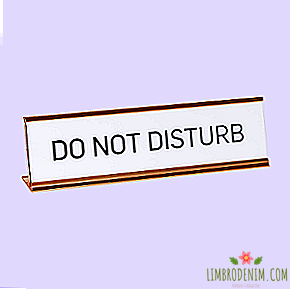How to survive in openspace and not lose productivity
Times of individual cabinets for several employees in offices, it seems, is gradually becoming a thing of the past - more and more often large companies are opting for openspaces, where several people sit shoulder to shoulder, at best, separated by small partitions. It is believed that the organization of a space in which all employees are close by is conducive to cooperation and collaboration: colleagues can approach each other at any time to clarify something or discuss a problem. Nevertheless, research so far says that it is more harm than good from openspaces: employees are sick more often, they can become less productive, and still seem to prefer to communicate with colleagues live, and via instant messengers and via e-mail.
Perhaps the whole thing is that openspaces thought differently: in the first such offices, invented in the XX century (of course, group jobs existed before, but the office was still not a factory), the employees had much more personal space. Anyway, many of us have no choice and opportunity to work in a separate, isolated room - and we don’t want to lose productivity. We have collected several techniques and life hacking, which will help to concentrate even in the most difficult environment.

alexander savina

Try white noise
It seems the most obvious way to cope with the noise in the office is to listen to music with headphones. True, this is not suitable for everyone: if you cannot concentrate on working under your favorite playlist, there is little point in this. In this case, white noise and the sounds of nature will help - with their help, you can imagine that you are not surrounded by colleagues, but, for example, listen to the sounds of rain on the ocean or your favorite summer house. If this is an option for you, take a look at services like MyNoise, A Soft Murmur or Noisli, as well as meditation applications like Calm or Brain.fm, where there are background sounds of nature. You can find the corresponding YouTube channel - our editorial, for example, loves Stardust Vibes, Relax Sleep ASMR, SleepDroid Studios, ΣHAANTI and ASMR Rooms, which helps you feel like a student of Hogwarts.
Choose good headphones
In the common space it is important to remember not only about your own comfort, but also about others. So choose headphones with good sound insulation: whatever you listen to, not everyone will surely appreciate it. For more comfort, it is worth looking at the devices with active noise cancellation - they will cost more, but they will additionally isolate them from the outside hum and let you listen to music at a lower volume.
Remember that long listening to loud music with headphones can damage your hearing. Experts advise to pay attention to the volume level: for example, the American Association of Speech, Language and Hearing considers it safe to listen to sounds of up to 70 decibels at any time interval — something like a vacuum cleaner hums. At the same time, the organization estimates the maximum volume of headphones at 112 decibels - experts believe that regular listening to even minutes of such sounds can lead to hearing loss. If you do not understand anything in decibels, you can rely on simple rules - for example, do not put tracks louder than half the level that the device allows, and follow the sensations. If after listening to music you hear ringing in your ears or feel stuffy like after a loud concert or school disco, you have clearly gone too far.
The type of headphones is not as important as volume: it is believed that the intra-channel headphones, or “plugs”, are inserted into the external auditory canal and are closer to the eardrum - but the overhead headphones also “lock” the sound, so that it falls on the eardrum, if not so close to her. In-ear headphones isolate external noise worse - which means you may want to turn up the volume, and this can lead to problems. There are no clear rules on how much you can listen to music with headphones, without harming yourself, no - it all depends on the specific situation. But in any case you should not misuse this technique: forty working hours spent on a weekly basis in headphones will most likely be of no use to you.
Take earplugs
Another way to disconnect from what is happening in the office is to use earplugs: unlike white noise and background music or sounds, they will not distract, but simply “muffle” everything around. Nevertheless, in this case there are nuances - we told about safety in detail here. The main thing to remember: earplugs can contribute to the development of infection, if they interfere with the natural release of sulfur. For the same reason, they must be cleaned regularly - washed with soap and warm water, and then dried thoroughly. Long wearing increases the risks, so if you decide on earplugs in the office, try not to plug their ears all the time.

Make the workplace more personal.
With noise, of course, this will not help, but it will help you to feel a little more comfortable. Place a pot with a plant that is easy to care for, decorate the table or walls that separate work spaces with photographs or postcards, take your favorite mug from home - and now the office seems a little more friendly. Do not forget to take care of yourself: bring a blanket or sweater from home in case the room gets colder (we all know how often this happens - especially before the summer is still far), take hand cream with your favorite smell - if the atmosphere around you is tiring, at least be on what to distract.
Meditate
We have already talked more than once about the benefits of meditation: it has long ceased to be an exclusively religious practice, and its techniques are used, among other things, to train attention, combat stress and relax. There are different techniques - one of the most popular, mindfulness meditation (meindfulnes), teaches concentrating on a specific process (for example, one’s own breathing), without being distracted by thoughts or what is happening around. This is a skill that is definitely useful in the office: the ability to concentrate on the desired task, not paying attention to other people's conversations and noise, is the key to a successful stay in the openspace.
Set the rules
If a noisy environment prevents you, you can try to discuss the situation with your colleagues and set a certain set of rules. For example, agree not to talk on the phone in a common space (unless, of course, you do not work in a call center), but to go out and talk in the corridor, as well as to put smart phones on silent mode. If you feel that the surrounding space turns into an endless platform for negotiations, you can try to regulate the situation, for example, by setting aside some time to discuss business issues. If this is not possible (and this will not work in every situation), discuss individual "quiet hours" with a ban on openspace conversations - it is likely that even in a short period of time you will have time to tune in a productive manner.

Enter Do Not Disturb
For situations (or even days), when you have absolutely no opportunity to be distracted by other people's questions and conversations with colleagues, even if on business, you can enter a special sign that shows that now it is better not to touch you. In many offices, headphones are such a sign, it happens that even a complex system is built around them (conventionally, if both headphones are inserted - “do not disturb”, if one - “you can disturb, but do not, if the question is not urgent”). But you can go the other way and put a special sign for such situations - right up to a simple sign saying "do not disturb". Yes, perhaps, at first it will look strange - but in time, it will certainly help you to win some more personal space.
Work off the table
A way for those who become completely unbearable to work in openspace. It's great if your company gives you the opportunity to sometimes work from home, but if this is not your option, there is still a way out. Try to go to a quiet cafe for a short time or book a free conversation for an hour (the main thing is not to abuse this technique, so that your colleagues do not have to hold a meeting in the middle of the office). If you work at a stationary computer, and not at a laptop, try to become a little more mobile anyway - you can, for example, print some information that needs to be studied (although, of course, this is not the most eco-friendly option), or work from your phone - You can read Google dock or reply to emails from it.
Photo: artbox_of_life - stock.adobe.com, bando, etsy - stock.adobe.com





